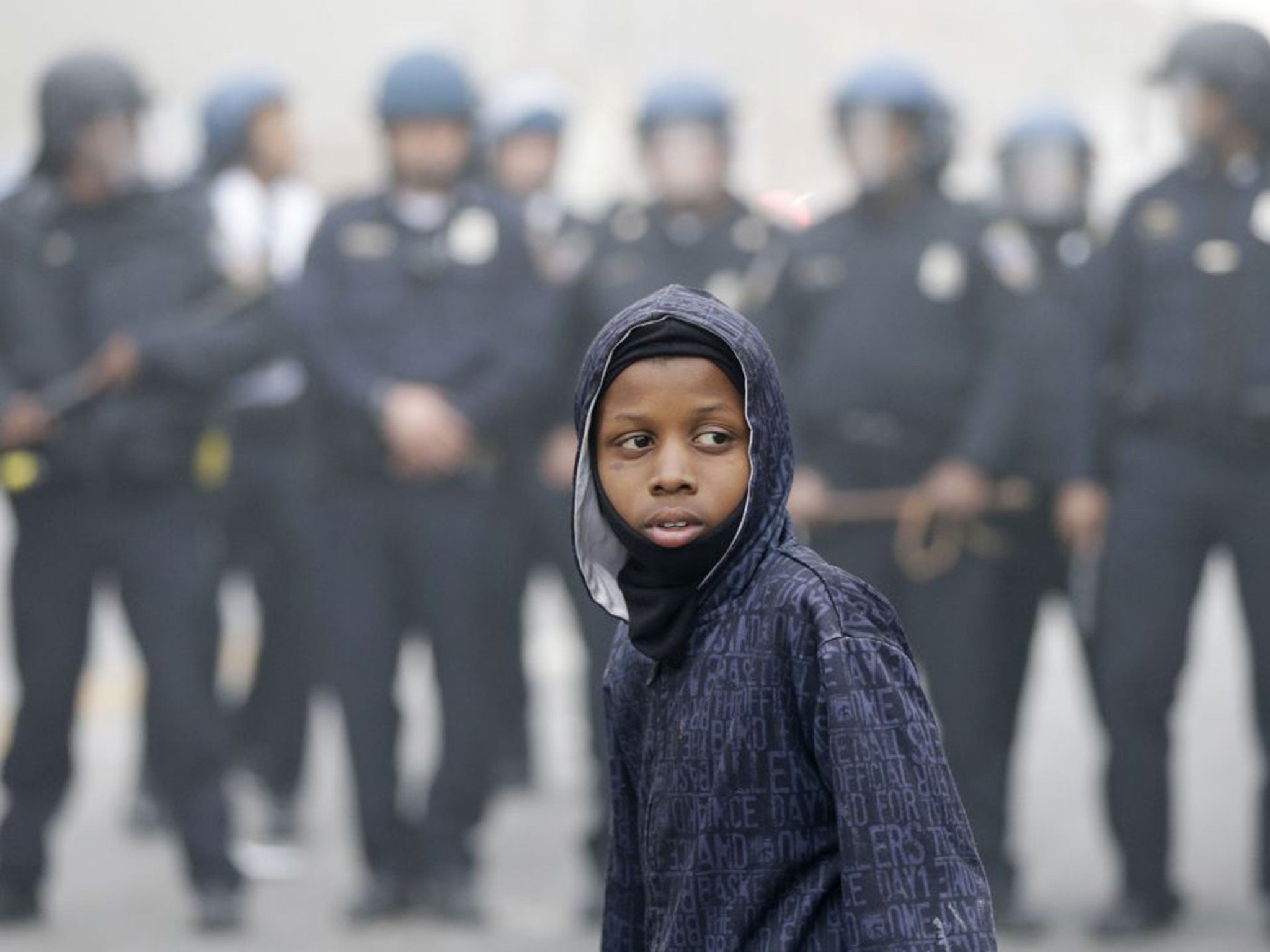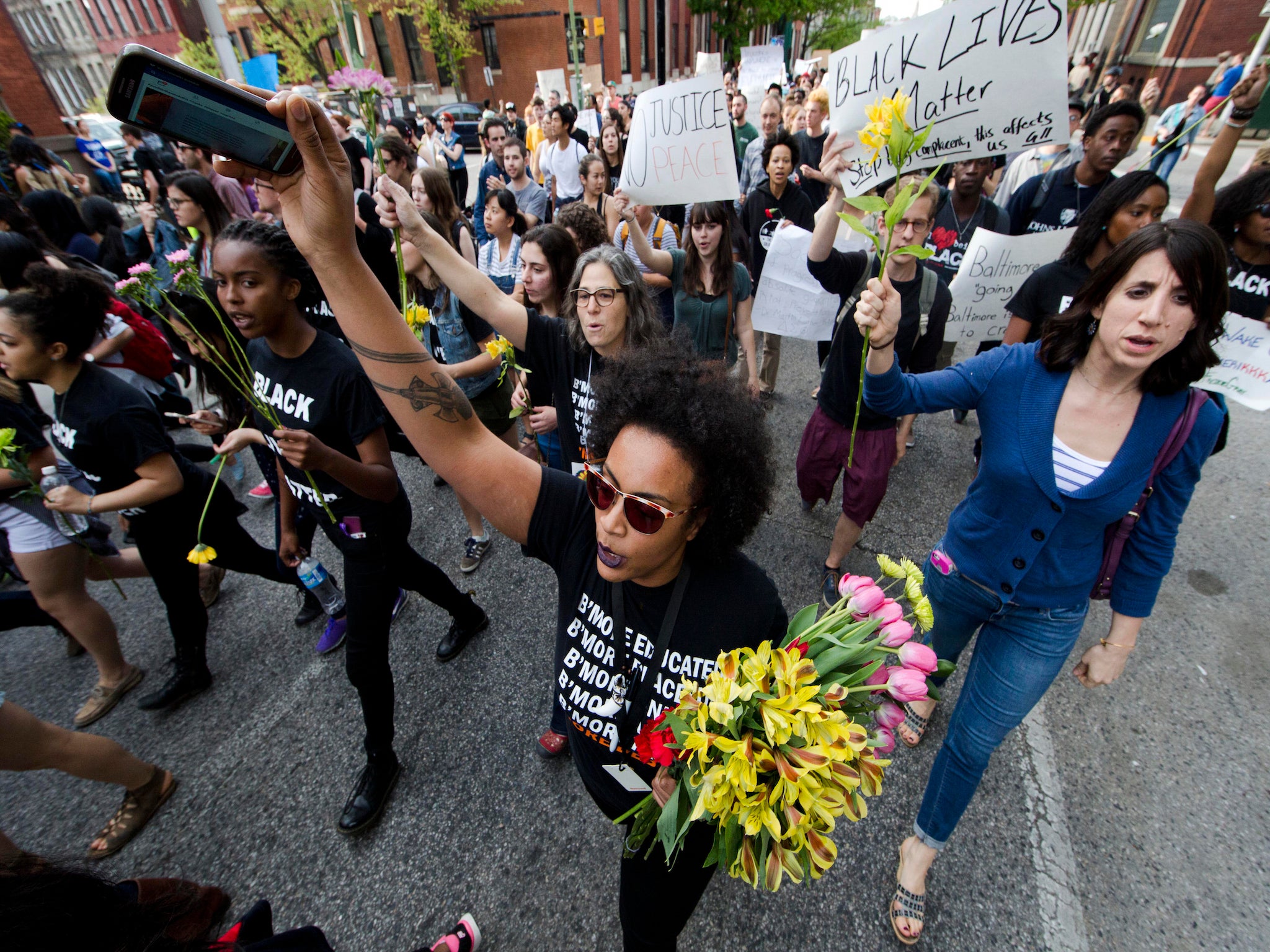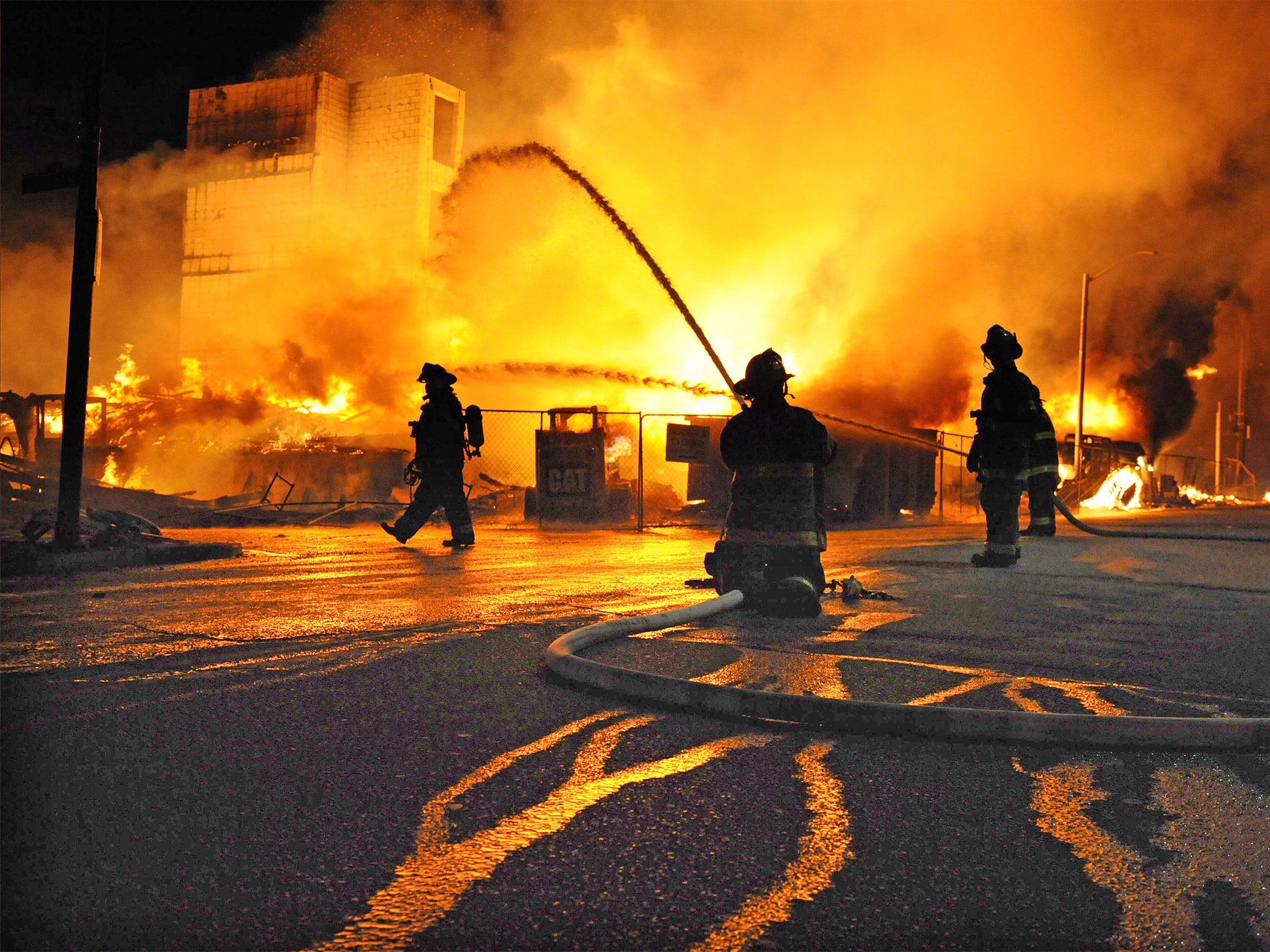Baltimore riots: How the Western media would cover the unrest if it happened elsewhere
If what is happening in Baltimore happened in a foreign country, here is how Western media would cover it

Your support helps us to tell the story
From reproductive rights to climate change to Big Tech, The Independent is on the ground when the story is developing. Whether it's investigating the financials of Elon Musk's pro-Trump PAC or producing our latest documentary, 'The A Word', which shines a light on the American women fighting for reproductive rights, we know how important it is to parse out the facts from the messaging.
At such a critical moment in US history, we need reporters on the ground. Your donation allows us to keep sending journalists to speak to both sides of the story.
The Independent is trusted by Americans across the entire political spectrum. And unlike many other quality news outlets, we choose not to lock Americans out of our reporting and analysis with paywalls. We believe quality journalism should be available to everyone, paid for by those who can afford it.
Your support makes all the difference.If what is happening in Baltimore happened in a foreign country, here is how Western media would cover it:
International leaders expressed concern over the rising tide of racism and state violence in America, especially concerning the treatment of ethnic minorities in the country and the corruption in state security forces around the country when handling cases of police brutality. The latest crisis is taking place in Baltimore, Maryland, a once-bustling city on the country’s Eastern Seaboard, where an unarmed man named Freddie Gray died from a severed spine while in police custody.
Black Americans, a minority ethnic group, are killed by state security forces at a rate higher than the white majority population. Young, black American males are 21 times more likely to be shot by police than white American males.
The United Kingdom expressed concern over the troubling turn of events in America in the last several months. The country’s foreign ministry released a statement: “We call on the American regime to rein in the state security agents who have been brutalizing members of America’s ethnic minority groups. The equal application of the rule of law, as well as the respect for human rights of all citizens, black or white, is essential for a healthy democracy.” Britain has always maintained a keen interest in America, a former colony.
Palestine has offered continued assistance to American pro-democracy activists, sending anti-tear-gas kits to those protesting police brutality in various American cities. Egyptian pro-democracy groups have also said they will be sharing their past experience with U.S.-made counter-protest weapons.

A statement from the United Nations said, “We condemn the militarization and police brutality that we have seen in recent months in America, and we strongly urge American state security forces to launch a full investigation into the death of Freddie Gray in Baltimore. There is no excuse for excessive police violence.” The U.N. called on the United States to make a concerted effort to make databases of police violence public to improve transparency and cut down on corruption in the justice system.
International analysts predict the seeds of a so-called “American Spring,” fomented by technology. “It’s amazing what social media is doing for the cause of justice in America,” said a political rights analyst based in Geneva. “The black youth of America are showing what 21st-century civil rights activism looks like, using technology, social media and a decentralized organizing strategy to hold authorities accountable and agitate for change. These kids represent what modern-day freedom fighting looks like. The revolution will be tweeted, Periscope-d and Snapchatted.”
Local leaders in the American township of Baltimore imposed a state of martial law this week after peaceful protests turned violent. In response, countries around the world have advised darker-skinned nationals against non-essential travel to areas noted for state violence against unarmed people of color, especially in recent hot spots such as New York, Missouri, Oklahoma, South Carolina, Ohio, California, Michigan, Virginia and now Maryland.
International human rights groups have appealed to the global community to facilitate asylum for America’s ethnic black minorities. When asked whether the European Union was willing to take on more black refugees risking their lives in fleeing American state violence, an E.U. human rights spokesman said: “More black refugees? We are dealing with our own Mediterranean crisis, so now is not really a good time for that for us. Furthermore, we believe in American solutions to American problems.” The African Union has not responded to requests for comment.
American government officials took to state media, characterizing the protesters as “thugs,” a racially coded word increasingly used to describe black males in America. Commentators in national media have frequently compared the protesters and riots to various characters and events from the popular television series “The Wire,” set in early-2000s Baltimore.
America’s ethnic blacks have been displaced from many of their communities due to a phenomenon experts on the region call “gentrification,” when wealthier residents move into a lower-income area. Baltimore is no exception to this trend, with some areas seeing home values rise as much as 137 percent after corporate dollars move in on opportunities in poverty-stricken areas.

Resident Joe Smith, a member of the white majority ethnic group, said outside of a brand-new Starbucks near Baltimore’s Inner Harbor, “I don’t know why these blacks are destroying their own communities. Why don’t these people follow Martin Luther King’s example? Those guys got it good from the police back then too, but they didn’t try to rise up and fight back and make everyone uncomfortable, you know?”
Copyright: Washington Post
Join our commenting forum
Join thought-provoking conversations, follow other Independent readers and see their replies
Comments